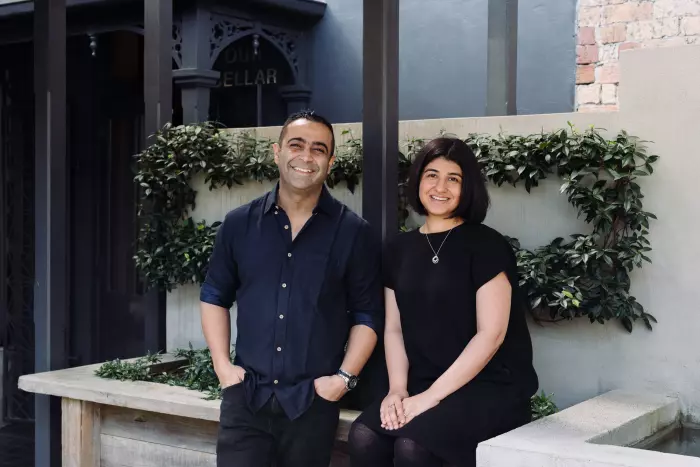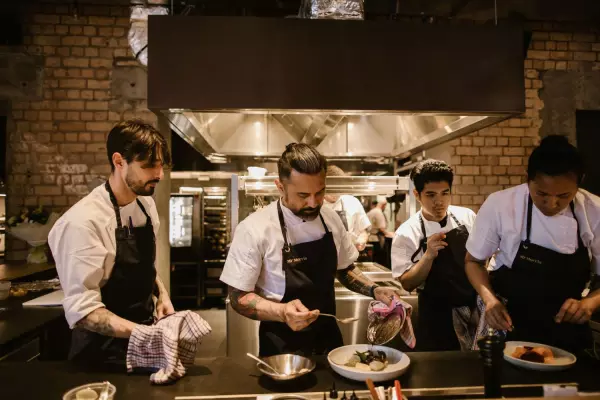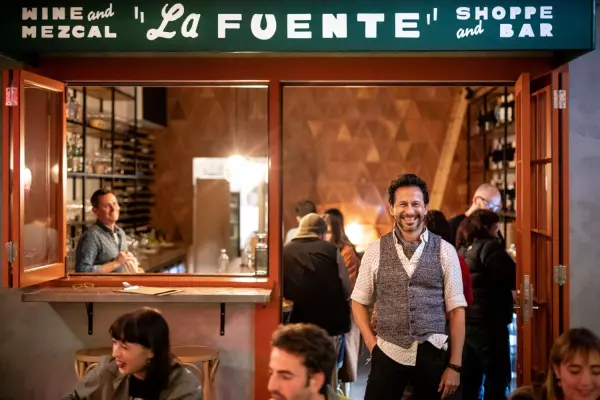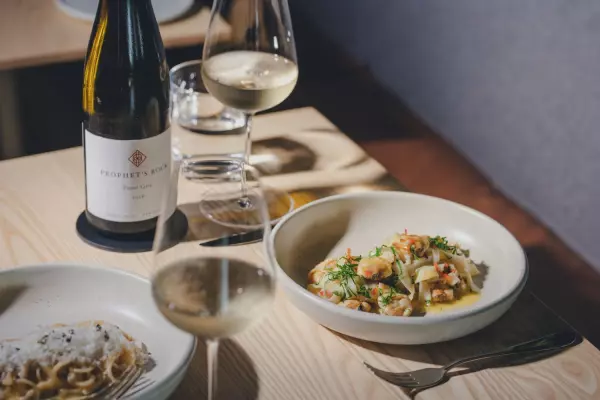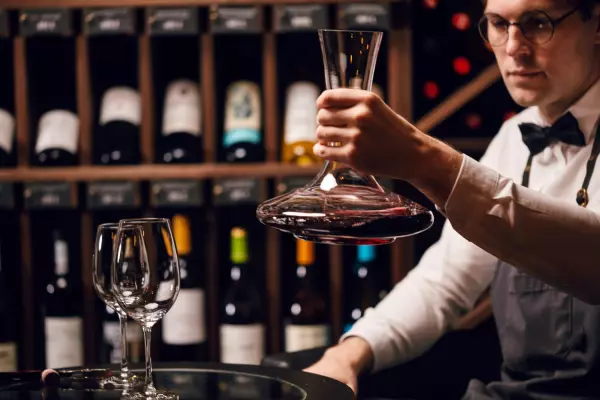Early on a busy Friday night in Auckland, a crowd of beanie-clad millennials formed around a cluster of outside tables, waiting to get into Ponsonby Rd’s newest hip eatery, Ockhee.
I sat smugly inside, persimmon kimchi between my chopsticks. While servers overseas must don masks and gloves, the people around me were champing at the bit to drink wine and be merry; to rub shoulders and eat fancy food. After the near-apocalyptic prophecies which arose out of alert level 4, it felt like a relief. Good job, team. Crisis averted, huh?
Yet, the Restaurant Association predicts 20 percent of Kiwi hospitality businesses will shut their doors within the next six months. According to their members, Auckland, Wellington and Queenstown are doing it the hardest – places which rely on tourism the most affected.
“Once the wage subsidy dries up, their businesses will more than likely close,” association chief executive Marisa Bidois says.
Even if some restaurants are enjoying booming success as diners release lockdown’s pent-up tensions, it’s important to note it isn’t that way across the board. Eateries in lush suburbs are seeing better numbers than joints struggling in ailing city centres as flexi-working rearranges foot traffic, for example. The bottom line is, hospitality is losing $52 million per week, and it might only get worse from here.
“We’re preparing for the worst,” says Chand Sahrawat, who owns Auckland’s Sidart, Sid at the French Cafe and Cassia with her partner, Sid.
Despite all three restaurants being slammed the last few weeks, developing the capability to react quickly to changing circumstances meant that, for them, some restructuring was in the cards – cutting out middle management, redeploying them, and putting all planned refurbishments on the backburner.
Their usual four-week break in the holiday period? Forget it – they can’t afford that this year. “It’s just about making the business sustainable so we can keep as many jobs as we can, for as long as we can.”
This worry about the “honeymoon period” is shared by every owner I speak to. They’re all keenly aware that eating out is a luxury – one that could easily be slashed from a person’s weekly routine. The slow impending winter season, an imminent recession, and the lack of tourists and international students are all bearer of bad times.
“We’re waiting for that huge drop,” says Jackie Lee Morrison, owner of Lashings in downtown Wellington.
Asher Boote, who owns four restaurants in Wellington, including Hillside Kitchen, believes that September – when the wage subsidy extension will end for most – will be the true test. “I feel like that’s when reality is going to hit for a lot of people financially.”
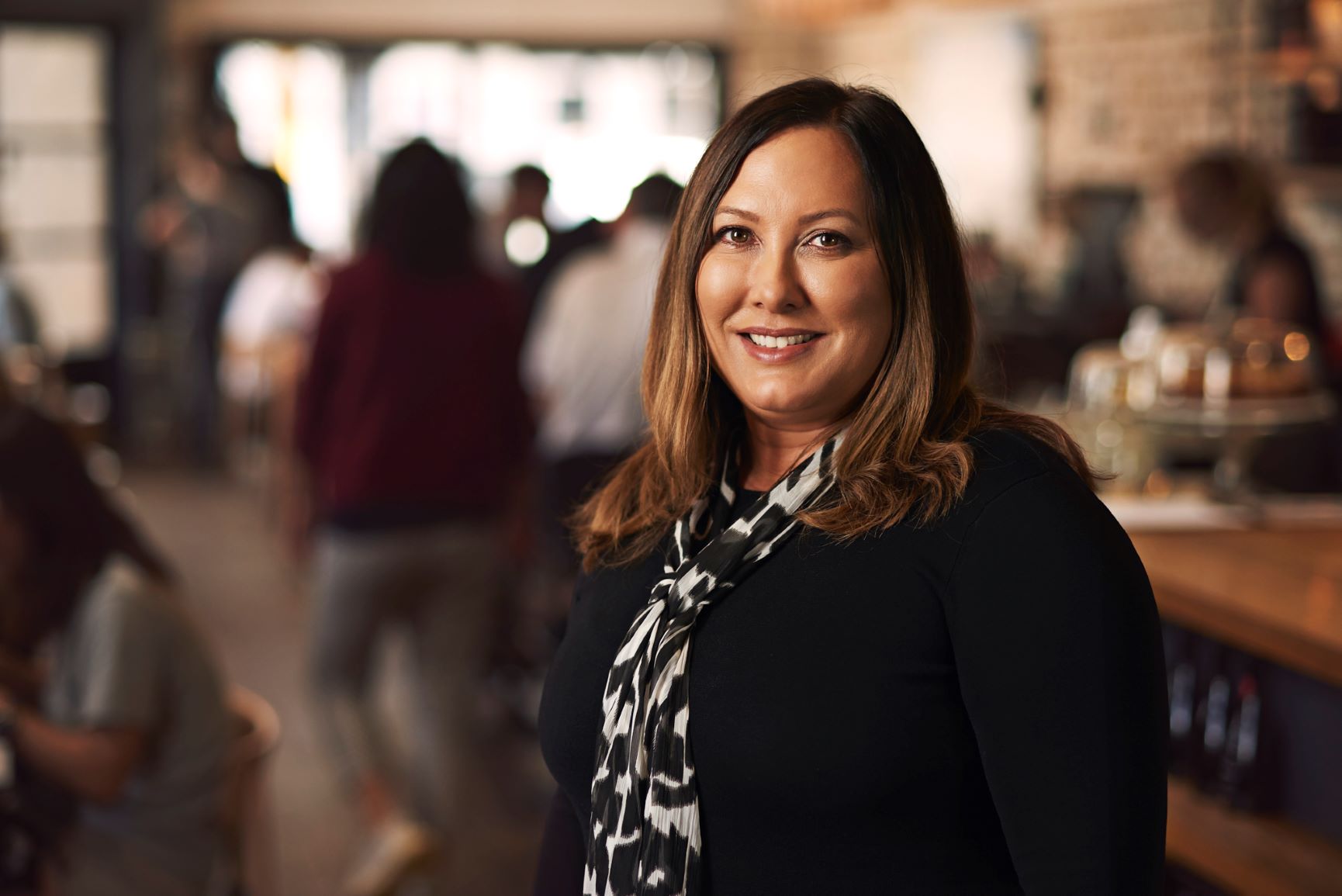 Marisa Bidois, ceo of the Restaurant Association
Marisa Bidois, ceo of the Restaurant AssociationAt the moment, it’s impossible to tell if things are back to normal as weekend numbers continue to fluctuate. “My planning at the moment is planning for next year, and planning for tomorrow.” The uncertainty of the year means that, at his most optimistic, Boote feels “tentative”.
Tentative is an apt descriptor in an industry which, one way or another, always seems to be on the rocks. “I don’t think anyone realised how precarious the hospitality industry really was until the pandemic happened,” says Lee Morrison. “I feel like we’re going to see more closures, whether it’s because their establishments just don’t work anymore, or they’re unable to adapt, or they just don’t want to adapt.”
Min Baek, the owner-chef of Korean restaurant Han in Auckland’s Parnell, is adapting. Shifting into survival mode, he’s made some changes incongruent to his auteur-like culinary vision. “Sometimes what you want to do versus what you have to do doesn’t add up,” he adds, wryly.
Keeping a close eye on the proceedings in his home country of Korea has been a crystal ball exercise on where the industry might head next. It’s led him to develop food kits featuring crowd-pleasers like Korean tacos under a secondary brand, believing the appetite for home-cooking will be a growing business. “You can’t just earn money from running a restaurant.”
Baek sees the creation of extra revenue streams as vital guaranteed income. More and more businesses will be pivoting to these adaptations – home deliveries, pre-prepared food, simpler menus – but whether they’re short-term fixes or long-term developments remain to be seen.
Regardless of these disheartening actualities, the opening of new restaurants persists, most of them set in motion before covid-19 became a household name.
Prominent restaurateurs have previously argued that the council should regulate the number of licenses issued, perhaps adopting a one-in, one-out system. It’s true the industry has been achieving consistent growth for the last 30 years, egged on by the democratisation of dining out and a burgeoning food culture. “There’s no test to someone opening a restaurant,” Sahrawat says. “You could get inspired by MasterChef and open one without understanding the hospitality industry at all.”
 Asher Boote
Asher BooteIn mid-June, the Commercial Bay precinct opened in downtown Auckland, introducing more than 35 new dining outlets to the food scene. Every time I visited it was packed to the gills; it’s hard to believe there’s a hospitality crisis when you have to wait for a table at a glammed-up food court.
Deeper into the CBD, though, you’ll find it’s a different story – of course, everyone just wants to check out the new kid on the block. Viv Beck, CEO of the city centre’s business association Heart of the City, says that although scheduled international events meant that the new eateries were likely to meet growing demand, it’s obvious there’s a tough road ahead.
It’s common knowledge that while certain problems are covid-19 specific, the hospitality industry has been in trouble for quite some time. It is, as Boote puts it, “kind of buggered.” Many cite the underpinning cause as an undervaluation of their service by its consumers, who expect prices to stay the same despite rising costs, while a highly competitive market makes lifting those prices untenable.
Every time I write about the hospitality industry now, I think about Tunde Wey. A Nigerian-American cook, writer, and artist, Wey sparked widespread discussion in the food world with his essay, ‘Don’t Bail Out The Restaurant Industry’. In it, he writes, “We’re on the cusp of something… ordinary. We’re on the cusp of everything remaining the same.”
It was a blazing indictment on the inequities which prop up the industry, including the ill treatment of restaurant workers and a classist system prioritising the interests of the owners. The parallel argument is that margins in hospitality are incredibly thin and owners are at the mercy of high rents. Essentially, it is, on either side, a broken structure.
While we can’t exactly demolish the system while the foremost imperative is to survive, it’s clear that the future of hospitality will require a shake-up. “Maybe rejuvenated is a good way of putting it,” Boote suggests. He thinks that long-term sustainability will likely hinge on focusing local and pursuing a smaller target market strongly by being the best at what you do, rather than try for a broader appeal. “You’re going to see more interesting, more eclectic, more focused menus.”
Talking about labour has always been frowned upon in the face of an increasingly romanticised restaurant industry - celebrity chef culture abounds - but that’s at the heart of a lot of hospitality’s problems. Pre-covid, the industry relied on migrants to fill those skilled roles, largely due to the fact New Zealanders have never viewed working in hospo as a viable career pathway – it’s a temporary solution on your way to becoming a lawyer. Or a journalist.
Bidois is forming a taskforce of hospitality owners from around the country to address these very issues. “Before lockdown, we had a severe skill shortage. We’re not quite sure where we’ll be at the end of this crisis, but undoubtedly, we’ll still be in a position where we’ll be reliant on migrant workers from overseas. We need to look at how we can retrain and create new pathways which show how valuable a career in hospitality can be for an individual.”
About three weeks after alert level 1 was announced, I had dinner at a small Japanese restaurant in my local North Shore neighbourhood. It was quiet, but the owners – who had only opened the place a week before lockdown – say business was picking up, although the situation was not ideal. “We’re trying to forget that lockdown even happened,” she laughed.
If only.
Unfortunately, a period of total shut-down, followed a period when restaurants could only offer takeaways, then a period of not welcoming any international tourists, will be felt; we just don’t know yet how deep it’ll run. Inevitably, we’ll see more staff laid off and we’ll see closures, but we’ll also see an increase in innovation and community, as restaurants fight for a piece of a smaller pie.
To me, it’s hopeful that the word “optimistic” is repeated tenfold through my conversations, echoing with innate understanding that the hospitality industry will always survive, in one way or another. We’ve all gotta eat.


